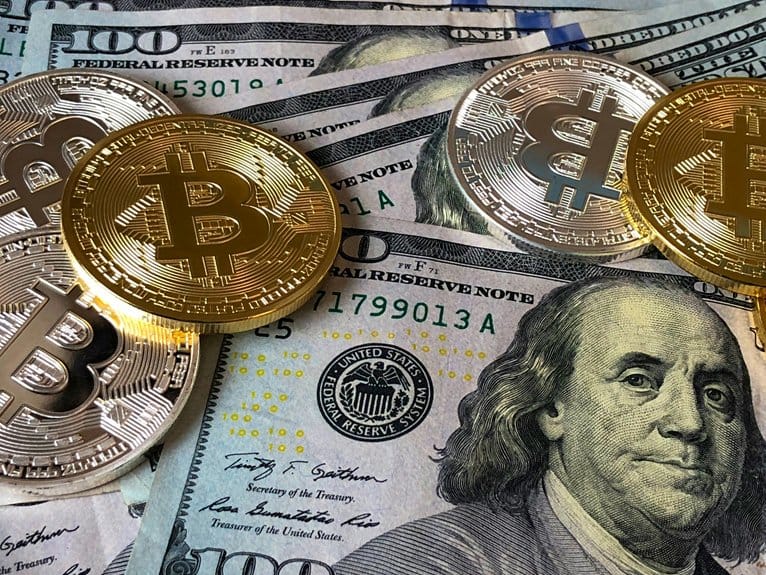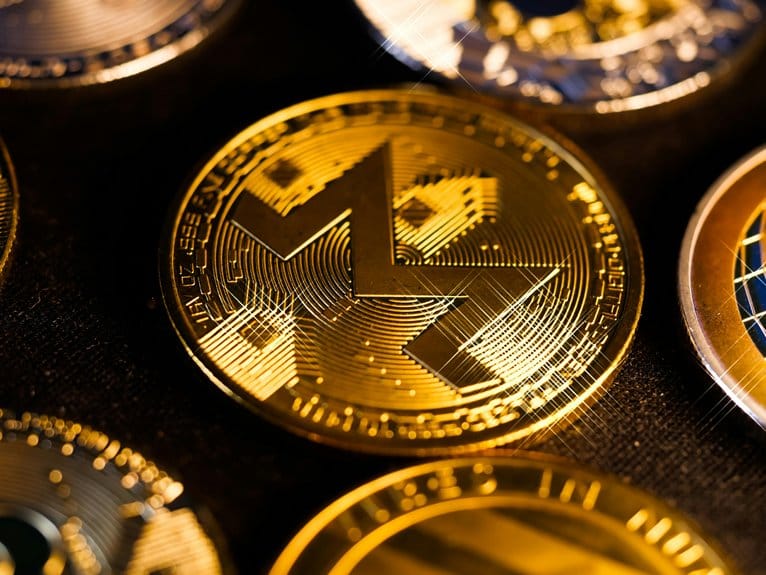Asset tokenization leverages blockchain technology to transform traditional assets into digitally tradable tokens, revolutionizing ownership structures across markets. This innovation enables fractional investment opportunities, enhanced liquidity, and automated processes through smart contracts. The global tokenized asset market is projected to reach $16.1 trillion by 2030, driven by adoption in real estate, commodities, and private equity sectors. Blockchain-based systems provide transparent, efficient transactions while reducing costs and eliminating intermediaries. As regulatory frameworks evolve and technological capabilities advance, this transformation presents unprecedented opportunities for investors to participate in previously inaccessible markets.
Understanding Asset Tokenization
Transforming traditional assets into digital tokens represents a fundamental shift in how we approach asset ownership and transfer. Asset tokenization leverages blockchain integration to convert real-world assets, such as real estate, art, or securities, into digital representations that can be stored, traded, and managed on distributed ledger systems. This process creates security tokens that represent fractional investments in underlying assets, enabling broader market participation and enhanced accessibility.
The tokenization framework introduces significant advantages in liquidity enhancement by allowing traditionally illiquid assets to be easily divided and traded. Through decentralized finance protocols, these digital ownership instruments facilitate seamless ownership transfer while maintaining regulatory compliance and transaction transparency.
The process also revolutionizes asset valuation methods by providing real-time pricing mechanisms and creating more efficient markets for previously hard-to-trade assets. This technological advancement particularly benefits investors seeking portfolio diversification through smaller investment increments.
The immutable nature of blockchain records ensures secure documentation of ownership rights, while smart contracts automate compliance procedures and reduce administrative overhead. This infrastructure establishes a more inclusive investment ecosystem while maintaining the security and integrity of traditional asset management systems.
Benefits of Digital Asset Tokens
Digital asset tokens deliver multiple compelling advantages that revolutionize traditional investment frameworks. Through fractional ownership capabilities, investors can acquire portions of high-value assets previously beyond their reach, while liquidity enhancement mechanisms facilitate smoother trading and value realization.
The blockchain infrastructure ensures transparency improvement across all transactions, reducing information asymmetry and enhancing market efficiency. The implementation of smart contracts drives significant cost reduction by automating processes and eliminating intermediaries, making asset management more economical.
Access democratization represents a cornerstone benefit, enabling broader market participation across demographic and economic boundaries. Digital tokens expand global reach, allowing investors worldwide to engage with assets irrespective of geographical constraints.
Advanced security features, including cryptographic protocols and immutable ledger records, protect investor interests and asset integrity. The tokenization framework also enables enhanced investor engagement through automated dividend distributions, voting rights management, and real-time reporting capabilities.
These technological innovations collectively transform traditional asset management paradigms, creating a more efficient, accessible, and secure investment ecosystem that aligns with modern market demands.
Real Estate Meets Blockchain
The convergence of real estate and blockchain technology represents a paradigm shift in property investment and management. Through tokenization, traditional real estate assets are being transformed into digital tokens, enabling fractional investments and democratizing access to previously exclusive property markets.
This innovation introduces decentralized ownership structures that challenge conventional property rights frameworks while maintaining legal compliance.
Blockchain-based digital deeds streamline property transactions, reducing administrative overhead and enhancing transparency in ownership records. The technology enables automated compliance, faster settlements, and improved liquidity solutions for traditionally illiquid real estate assets.
Market accessibility has expanded significantly, allowing investors to participate with smaller capital amounts through fractional ownership models.
Real estate innovation through blockchain requires comprehensive investor education to understand the technological and legal implications of tokenized property ownership.
The industry is witnessing the emergence of specialized platforms that facilitate these transactions while ensuring regulatory compliance.
This transformation is creating new opportunities for portfolio diversification, cross-border investments, and efficient property management, fundamentally reshaping how real estate assets are bought, sold, and managed in the digital age.
Smart Contracts and Asset Management
Smart contracts serve as automated executors within blockchain-based asset management systems, revolutionizing how tokenized assets are controlled, transferred, and monitored. These self-executing protocols streamline transaction processes while ensuring compliance with predefined conditions, significantly reducing operational overhead and human error in asset management.
The implementation of standardized token standards, such as ERC-20 and ERC-721, enables seamless integration across decentralized platforms while maintaining consistent protocols for asset transfer and ownership verification. Smart contracts automate crucial processes including dividend distribution, ownership rights management, and regulatory compliance reporting, creating a more efficient ecosystem for asset administrators and investors alike.
Risk mitigation becomes more robust through smart contracts' immutable nature and automated verification processes. The technology enforces predefined legal frameworks through code, ensuring that transactions only execute when all conditions are met. This systematic approach enhances transaction efficiency while maintaining security protocols.
As the industry evolves, smart contracts are becoming increasingly sophisticated, incorporating multi-signature requirements, time-locked transactions, and automated dispute resolution mechanisms, establishing a new paradigm in digital asset management.
Market Impact and Future Growth
Asset tokenization's market impact has fundamentally reshaped traditional investment landscapes, with global tokenized assets projected to reach $16.1 trillion by 2030. Market trends indicate accelerated adoption across real estate, commodities, and private equity sectors, driven by increased demand for fractional ownership and enhanced liquidity.
Technology advancements in blockchain infrastructure continue to facilitate seamless asset digitization, reducing barriers to entry for retail investors.
Sector analysis reveals significant growth potential in emerging markets, where tokenization addresses traditional funding gaps and democratizes access to premium assets. Future projections suggest a compound annual growth rate of 50.2% through 2026, influenced by evolving investor behavior and regulatory clarity. The economic implications extend beyond investment democratization, creating new business models and operational efficiencies.
Global adoption rates show particular momentum in Asia-Pacific markets, with institutional investors increasingly incorporating tokenized assets into their portfolios.
Risk assessment frameworks are maturing, focusing on smart contract security, regulatory compliance, and market liquidity. This evolution signals a transformative shift in asset management, suggesting sustained growth trajectories as the technology infrastructure continues to mature and expand.
Regulatory Frameworks and Compliance
Across global jurisdictions, regulatory frameworks for asset tokenization continue to evolve, with authorities implementing specialized guidelines to address digital securities, custody requirements, and trading mechanisms. Financial regulators worldwide are developing comprehensive policy frameworks to manage the complexities of tokenized assets while ensuring robust investor protections and market stability.
Key regulatory challenges include cross-border jurisdictional issues, establishing standardized compliance standards, and addressing the legal implications of blockchain-based ownership.
Regulatory bodies are implementing risk management protocols specific to digital assets, focusing on cybersecurity, fraud prevention, and transaction monitoring requirements. International regulations are becoming increasingly harmonized as regulators collaborate to create cohesive frameworks that facilitate global trading while maintaining market integrity.
Financial institutions engaging in asset tokenization must navigate complex compliance requirements, including Know Your Customer (KYC) protocols, anti-money laundering (AML) measures, and securities regulations.
Policy development continues to adapt to technological advancement, with regulators working to balance innovation with market safety. This evolving regulatory landscape necessitates ongoing coordination between market participants, technology providers, and regulatory authorities to ensure sustainable industry growth.
Investment Opportunities Through Tokenization
Tokenization's transformative impact on traditional investment markets has created unprecedented opportunities for both retail and institutional investors. Through fractional ownership, investors can now participate in previously inaccessible markets, from real estate to fine art, with smaller capital requirements. This democratized investing approach has significantly reduced barriers to entry while enabling portfolio diversification across multiple asset classes.
The implementation of blockchain-based tokenization has revolutionized liquidity enhancement in traditionally illiquid assets. Secondary markets operating 24/7 facilitate seamless trading of tokenized assets, improving price discovery and asset valuation mechanisms. Global accessibility has expanded the investor base, creating deeper markets and more efficient price formation processes.
Investment diversification through tokenization extends beyond traditional financial instruments, allowing investors to gain exposure to alternative assets like infrastructure projects, renewable energy installations, and intellectual property rights.
The technology enables automated compliance, reduced transaction costs, and near-instantaneous settlement of trades. This efficiency, combined with programmable smart contracts, has created a new paradigm in investment management, where portfolio rebalancing and risk management can be executed with unprecedented precision and speed.
Frequently Asked Questions
How Long Does It Take for a Tokenized Asset to Be Sold?
The sale duration varies significantly due to liquidity challenges and market fluctuations. Transactions can complete within minutes on digital exchanges, but finding buyers may take hours to months, depending on demand.
Can Tokens Be Inherited After the Owner's Death?
Tokens can be inherited through proper digital wills and estate planning. Inheritance rights for digital assets require clear documentation and private key management to ensure successful transfer to beneficiaries.
What Happens if the Physical Asset Gets Damaged or Destroyed?
Physical asset damage affects token valuation proportionally, requiring robust insurance protocols. Smart contracts can automatically adjust token values and trigger insurance claims based on asset conditions.
Are Tokenized Assets Accepted as Collateral by Traditional Banks?
Traditional banks' collateral acceptance of tokenized assets remains limited, with banking regulations still evolving. Some institutions are piloting programs, but widespread adoption awaits clearer regulatory frameworks and standardized valuation methods.
Can Token Ownership Be Disputed or Reversed in Case of Fraud?
Token ownership disputes can be addressed through smart contract-based dispute resolution mechanisms, while fraud prevention measures like multi-signature wallets and blockchain forensics enable transaction verification and potential recovery protocols.
Conclusion
Asset tokenization represents a transformative force in traditional ownership structures, enabling unprecedented market accessibility, liquidity, and operational efficiency. Through blockchain technology and smart contracts, the fractional ownership model creates new investment paradigms across real estate, commodities, and traditional securities. As regulatory frameworks evolve and market adoption accelerates, tokenized assets are positioned to reshape global financial markets while democratizing investment opportunities for a broader range of participants.





